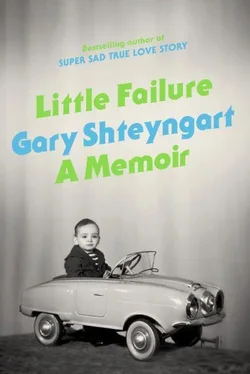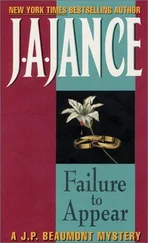How much time have I spent in the last twelve years running up and down this exhausted, melancholy city, retracing their steps, trying to somehow make them my own. And then with the first Russian words out of my mouth, I realize the truth of the matter. It’s not possible to make their lives my own. While my mother and father are here, this is their country. And so my responsibilities lighten. And so I realize that what I have to do for the next week is to ignore my own goofy Russian bass and, simply, to listen.

To the Minnesota tidiness of their room, my mother has added her own tidiness, a system of packing of infinite complexity, so that most of the contents of their three-story house have been condensed and magically transported to the old homeland. Plastic bags beget plastic bags, there are umbrellas, rain jackets, hoods, money pouches, and, from tomorrow’s breakfast table, yogurts, heavy bottles of water, a range of fortifying snacks. She will leave the hotel as provisioned as an astronaut testing the first reaches of an inhospitable planet. In her bones, this may still be her country. But she will not touch it with her hands the way I do, trying to lyricize the filth and the decay.
My mother is in her suburban gray sweatpants, bustling around the hotel room, hours of preparation still ahead of her before we head out to dinner. My father sports his STRIPED BASS CONSERVATION PARTICIPANT cap, a new Banana Republic jacket, and swish sunglasses, looking surprisingly Western by way of eastern Queens. Only the combination of black socks and leather sandals betrays him as a true native of this land.
Their strength amazes me. After two flights totaling fifteen hours, after lugging their considerable luggage across half the city via buses and metro — they will not spend the money for a taxi from the airport — they are still alert and vital, ready to down 250 grams of vodka at the Metropol restaurant down Nevsky Prospekt, the city’s main axis. This is the superhumanity of the immigrant, but woe be to the all-too-human offspring living in the shadow of such strength. Woe be to the sensitive one who requires one milligram of a benzodiazepine just to fall asleep after a journey of a few hundred kilometers taken aboard a peregrine falcon, versus the many thousands they have traveled aboard British Airways’ economy class.
“Igor, you look good,” my mother says. “Not like you’re tired.”
“I wouldn’t say so,” my father quickly intervenes, the fur sticking out of his shirt in the approaching twilight. For the longest time, he would wear my clothes, my hand-me-ups from Stuyvesant, all those peacock Union Bay and Generra shirts, so small and weak on his muscular body. “There are terrible circles under his eyes,” my father says, beholding me fully. “And what do you have on your forehead? Those two lines?”
They are called wrinkles , I want to say, but I do not want to appear mortal in front of him. “I leaned against the seat in front of me on the train,” I lie.
Throughout this trip, I will capture little instances of my family reflected in shop windows, my parents looking younger than their ages, younger than many of the people around them, while I look at least two decades beyond my years, the dead graying hair, the sunken eyes, and all the imprints from the years of hard living, those two telltale lines cracked into my forehead. How did it happen that I have aged in tandem with the citizens of St. Petersburg, the city in which my parents had reached their own middle age, while they have seemingly reversed time like true Americans?
My greatest fear: dying before they do. Growing up, it had been the reverse. I couldn’t understand how to be on this earth without them. But now every time I board a plane for some ragged destination, I feel their fear ascend through the air alongside me, the “autistic” vaccinations coursing through my blood.
“I will wash quickly under the armpits,” my father says, while my mother continues her endless grooming, warning us that “a woman is a long song.”
Settling in with his clean armpits, my father, the long journey behind him, begins to talk amiably, almost contentedly, about coming “home”: “You know, little son, you could write an entire book about me. I’m not an extraordinary person, but because my life was so varied, all my studies, and jobs in different places, there was much that was interesting.
“You understand, little son, that just like you, I’m a lonely [ odinokii ] person by nature. I don’t want to say that I like loneliness. Sometimes I like it, sometimes I don’t.”
Maybe this is the time for me to say, I love you . Or, better still, I am you . Maybe this is the flip side of the silence I have mastered. The inability to say what needs to be said until it is too late.
My mother sticks her head out of the bathroom. “Hey, guys!” she says happily. “I was so unattractive. But now I feel refreshed!”

We are heading up Nevsky Prospekt. The broad Nevsky cuts across the center of St. Petersburg at a northwestern tangent, as if trying to lead the way to Scandinavia. In the times of Gogol and Pushkin most everything happened along this street, from commerce to love to café-scribbled poetry to the choosing of seconds for duels. Today, it is still the place for a long aimless walk from the low-rent Uprising Square to the city’s focal point, Palace Square, where the de-tsared Winter Palace sits on its haunches in a green provincial funk. On Nevsky, chicken is fried in the Kentucky manner, and stores like H&M and Zara will, if given the chance, clothe a newly middle-class person from the shapka on her head to her galoshes.
St. Petersburg is a sad place. Its sadness lies in a mass grave in its northeastern suburbs along with the 750,000 citizens who died of hunger and German shelling during the 871-day siege, which began in 1941. Petersburg never truly recovered. It is impossible to walk down Nevsky, alone or with my parents, and not feel the oppression of history, the weight on our own family and on every family that has lived within this city’s borders since 1941. CITIZENS! a preserved sign at the northern mouth of Nevsky declares, DURING ARTILLERY BOMBARDMENT THIS SIDE OF THE STREET IS THE MOST DANGEROUS. And so it is.

We are strolling past outdoor patios heaped with sushi and sunlight. Women are already dressed for June’s gentle heat, looking as reproductive as their counterparts in New Jersey, only distinguished by the Orthodox crosses on their lovely bare necks. Indians with cameras press around us, preserving every cornice and portico for their prodigious zip files.
“This city always bring on sadness,” my mother says. “All of us children were sad growing up. There was a lot of dreaming.”
“On Rubenstein Street, I had my first love,” my father says. “Right over there.”
Much as I mercifully lack writer’s block, my mother has never been at a loss for a stray conversational tangent. “Before we left for America,” she says to me, “I went to the Eliseev store to buy you chicken cutlets. There was nothing to eat. So I was told to go to the Store of Children’s Nutrition. I spent two hours standing in line there, and right under my nose, they ran out of cutlets. I came home and I had nothing to feed you.”
I try to think of the time when I went without chicken cutlets. But all I see is my grandmother Galya, the one we left behind to die in Russia, dutifully feeding me cheese as I work away on Lenin and His Magical Goose , her meaty beak bent over my efforts.
Читать дальше













